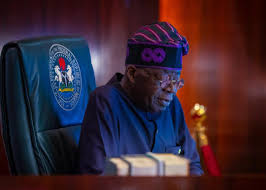
The Federal Government has issued a warning to organised Labour, urging them to consider the broader economic impact of their demand for a higher national minimum wage, which it deemed unrealistic. The Minister of Information and National Orientation, Mohammed Idris, stated that the N250,000 minimum wage proposed by Labour could destabilise the economy, result in widespread job losses, and negatively affect the welfare of Nigerians.
During a Democracy Day broadcast, President Bola Tinubu claimed an agreement on the new minimum wage had been reached, a statement strongly contested by the labour unions. Acting President of the Nigeria Labour Congress (NLC), Prince Adewale Adeyanju, clarified that as of June 7, no consensus had been reached by the Tripartite Committee on the National Minimum Wage.
The President’s assertion drew criticism from the unions, who reiterated their demand for N250,000, rejecting the Federal Government’s offer of N62,000 as insufficient. The state governors maintained they could not afford a minimum wage higher than N60,000.
Speaking at the Charismatic Bishops Conference of Nigeria, Minister Idris emphasized the need for a sustainable wage system that addresses workers’ needs without jeopardising the economy. He also highlighted government initiatives aimed at reducing the cost of living, such as the Presidential Compressed Natural Gas (CNG) programme, which aims to cut transportation costs by 50%.
Labour leaders accused the government of using intimidation tactics during negotiations, alleging that they were surrounded by armed soldiers. They insisted that no agreement had been reached and called for a fair and just wage system.
The dispute continues as both sides remain at an impasse, with Labour maintaining its stance on the N250,000 minimum wage demand, and the Federal Government urging a realistic and sustainable approach.
Comments